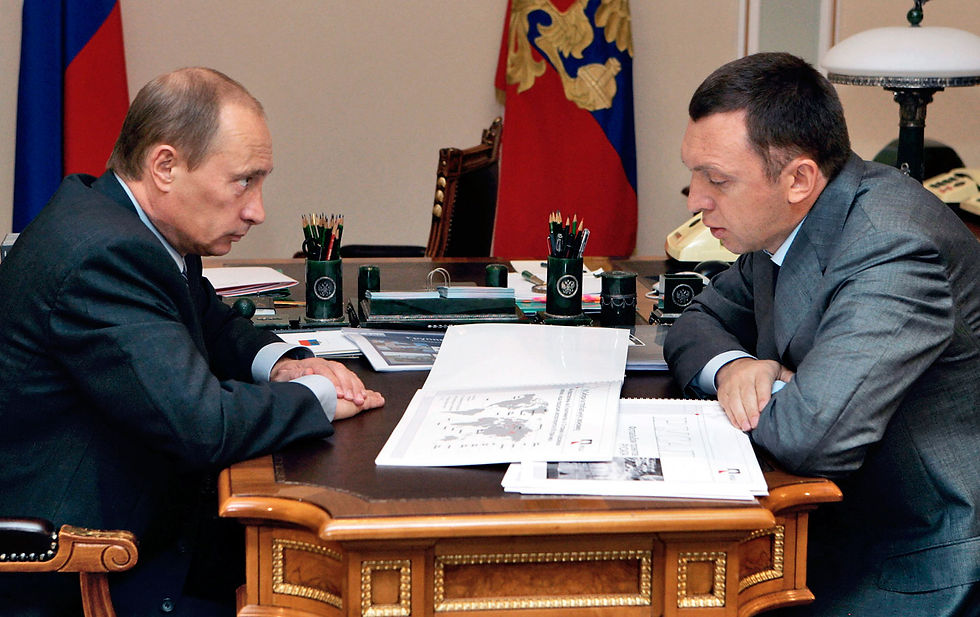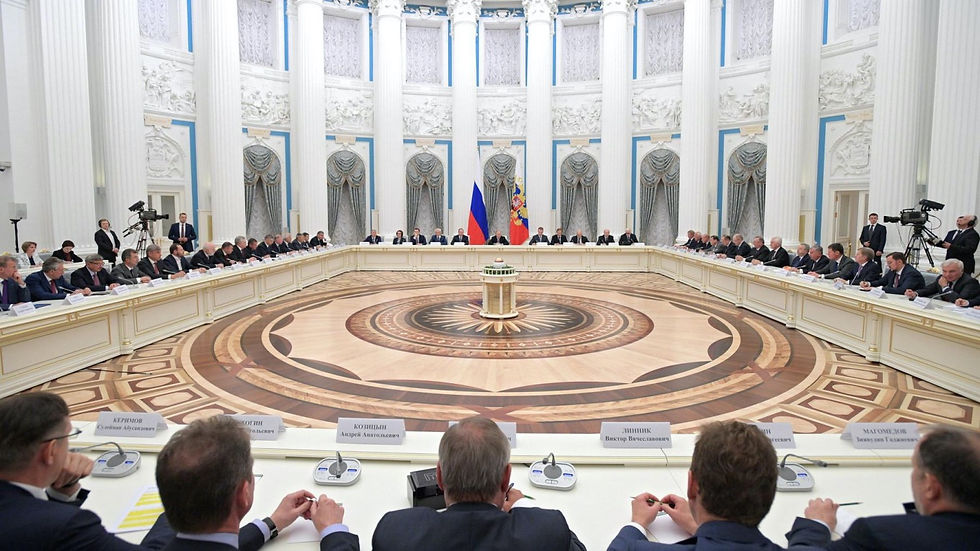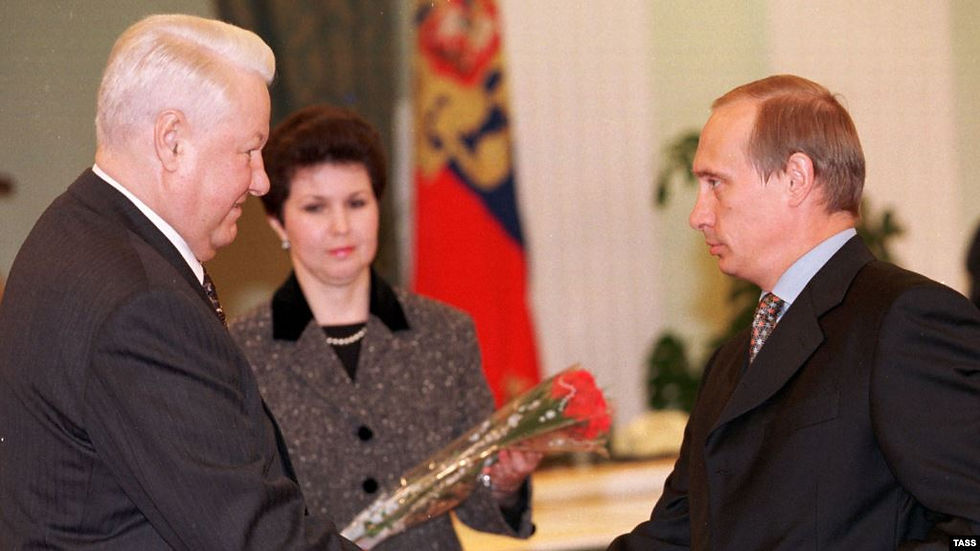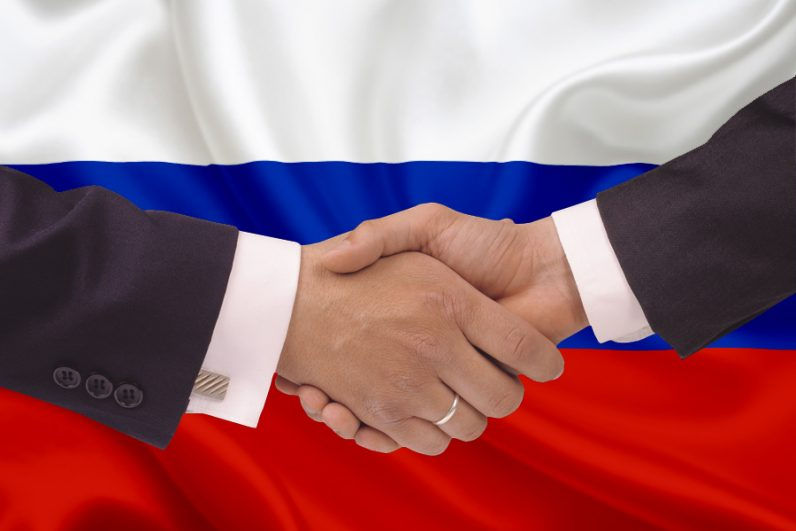Putin's Control of the Oligarchs
- George Hadjipavlis

- Dec 16, 2019
- 5 min read
Author: Giorgios Hadjipavlis

This post continues from the visualisation of the evolution of the oligarchy by providing a concise overview of the toolkit deployed by the Putin regime to ensure the loyalty and obedience of the oligarchs. By deploying the toolkit analysed below, Putin has achieved restricting political competition from the oligarchy. As a result, this has considerably narrowed their informal functions, as presented throughout the Informal Russia blog.
The measures of enforcement of the pact
The Putin regime deploys measures of punishment and reward to ensure he has the intended compliance by the oligarchs. To differentiate between actions grounded in formal procedures and informal activities, the section categorises each item as formal or informal. Yet, it is essential to consider that the measures transverse the formal-informal divide. The formal processes are a facade for the Kremlin to achieve its objectives while claiming to uphold the law, while in fact informal processes are utilised to subvert formal processes and institutions into achieving the intended objectives (see Gel’man 2012 for a detailed explanation of this process). The development of Edinaya Rossiya has bolstered the effectiveness of the toolkit by adding an additional channel in resolving the commitment problem.
Punishment
A range of punitive tools have been utilised ranging from formal actions subverted by informal activities, to informal instruments.
1. Arbitrary asset seizure (formal)
Clearly evident in the case of Yukos. Driven by political motives, the Kremlin ordered the judiciary and the tax authorities to impose fines and restrictive measures on the company. Formally, the pretext for the charges was tax evasion, in line with the framework Gel'man introduces. The ECHR noted several violations in Yukos v. Russia, yet the Russian Constitutional Court denied the enforcement of the judgement. This exemplifies the grasp of the Kremlin on formal institutions. This tool is usually deployed to usurp legal entities associated with dissidents.
2. Criminal charges (formal)
The instrument deployed to punish the dissidents themselves is charging them under the penal code, usually for tax evasion. Khodorkovsky, Gusinsky, and Browder were all charged in an attempt to be silenced.
3. Telefonnoe pravo (informal)
The informal mechanism to control the formal procedure of pressing criminal charges can be discerned by the term 'telefonnoe pravo'. Although this showcases a part of the complex informal processes by which the Kremlin subverts the institutions to its will, the concept is crucial in understanding how the Putin regime operates. Nataliya Vasilieyeva, a law clerk of the court where Khodorkovsy was tried, explains the process.
4. Shares for freedom (formal)
Those considered less threatening to the regime, such as Gusinksy, were granted the option of regaining their freedom by selling their shares to a state-controlled entity under Protocol No. 6. Like the other formal procedures, this is coupled with invisible informal activities, such as coercion and intimidation. Gusinsky sold his “Media Most” group to state-controlled Gazprom-Media.
5. Other informal measures
The case of Durov showcases the breadth of the Kremlin toolkit in dealing with non-conformists. Since he was not a political antagonist but rather refused to conform with the state's orders, a milder punishment was delivered. As detailed above, his board was informally pressured into deposing him from the position of Chief Executive Officer.
6. State-induced chernukha (informal)
Chernukha is an umbrella term for a variety of means, such as kompromat and slander which seek to manipulate public opinion against the intended target. As evident by the insistence on using formal procedures, the Kremlin ensures it does not appear to outright punish dissidents for their political insubordination. Albeit Bill Browder being a foreigner who became an "oligarch" in Russia, he received the chernukha treatment by the authorities.
7. Exile (informal)
Exemplified by the cases of Khodorkovsky, Berezhovsky and Durov who all moved abroad. The state can render the conditions of staying within Russia impossible, either by depriving the target of the opportunity to live a normal life as afforded by the Russian Constitution and operate their business, or because of the danger of physical harm. Despite not being an oligarch, the account of Latinina is useful in identifying the mental pressure exerted by the authorites. Reward
Akin to punishment, the rewards demonstrate similar patterns of blurred boundaries between the formal and the informal. The rewards mostly operate by the state providing resource allocations or payments to loyalists. Many of the processes detailed below can be captured by the umbrella term deryban.
1. State procurement (formal)
The award of state tenders to loyalists. An example would be awarding the construction of the Crimean Bridge to Stroygazmontazh, the company of Putin ally Arkady Rotenberg.
2. State "procurement" and facilitation (informal)
The Russian state utilises informal mechanisms to reward allies for providing services in which the government cannot be implicated. These can be considered to range from the payment of public funds for covert services, and the provision of financing and other facilitating measures. The example of the acquisition attempt of Bulgartabac by Savvidi mentioned in the visualisation article is one example. As alleged, the purchase was supported by the financing of VTB, in order to enable both Savvidi to extend his business endeavours, and the Russian state to expand its influence abroad. Another notable example is the operation of the Wagner Group and the Internet Research Agency (allegedly owned by Putin-ally Prigozhin). The Wagner Group operates in conflict zones, such as Donbass, Syria, and Libya, where the Russian state interests must be upheld without the involvement of the state being evident to allow for deniability. The Internet Research Group and its broader network of companies have been alleged to engage in state-sponsored cyber-operations, such as the meddling of the U.S. elections. Since the Wagner group is a flourishing private company, the existence of sophisticated covert mechanisms for the transfer of public monetary resources to such companies can be thought to exist. Another example which exhibits the variety of available mechanisms is the use of Russian bureaucracy by Deripaska's staff used the Russian bureaucracy to pressure the U.S. into easing the sanctions placed upon his companies. The latter is a clearer example of how formal institutions can be used informally for purposes they were not intended for.
The role of United Russia in resolving the commitment problem
An additional tool utilised to lock some economic elite in the loyalty pact is engagement with or membership in United Russia. This serves to resolve the commitment problem (Reuter & Remington 2009). The party is an additional mechanism to "divide the spoils" as shown above. Affiliation with the party provides a certain degree of certainty on the future acquisition of state-provided rents, and serves to diminish uncertainty from non-membership. As the authors indicate, the elite command just enough influence to incentivize the Kremlin's commitment, while the Kremlin is assured of the elite's commitment given their relative weakness. Yet, the party is not there sole mechanism utilised.
Reference List:
1. Gel'man V. (2012). Subversive institutions and informal governance in contemporary Russia. In: Christiansen T. & Neuhold C. (eds.) International Handbook on Informal Governance. Cheltenham, Northampton: Edward Elgar.
2. Reuter O. J. & Remington T. F. (2009). Dominant Party Regimes and the Commitment Problem The Case of United Russia. Comparative Political Studies 42(4). Pp. 501-526.





Comments